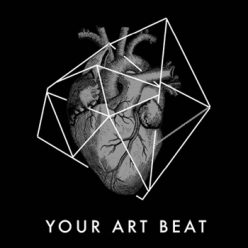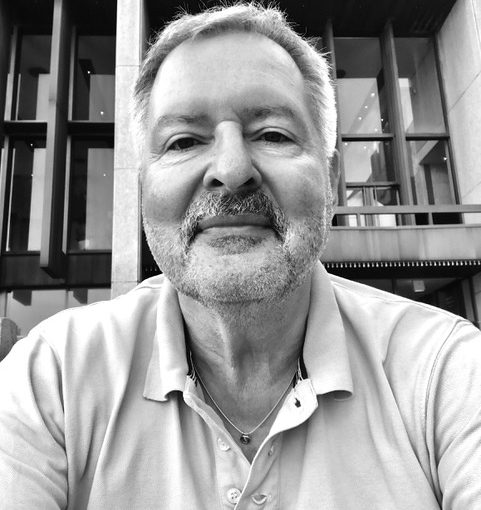First of all – why?
Well, I think that WE, MANKIND, at the very moment are taking a further big and decisive step into an unknown and different terrain. This new world we are already in, is signified by a process of acceleration, WE have not experienced before. Digitization, Globalization as well as Climate Change are metaphors to describe that huge transformation taking place right now. The Covid-19-Pandemic, that now hits, frightens, and moves all of us on this planet, forces the society and each and every one of us into new operational modes. And WE need to manage that somehow. I think that we are obliged to look for good tools and results – so that all members of MANKIND have a fair chance to reach a good life here on this only planet we have.
And Education?
Education is a very valid and resourceful path, a powerful tool, a good means to that end. Yet it has to be education for the 21t Century. Education has to leave at least some of its traditional ways and structures behind. The roads to education will and have to be manifold. Informal learning and knowledge and skills gathering will be more important – many of us do have knowledge beyond the statement of whatever kind of standardized and regulated proof. Here, a great potential is hidden to react in a flexible way, to open up chances and act less bureaucratic, to mainly foster self efficacy and self-responsibility.
Really? Why?
Because the challenges ahead are different from yesterday’s. All involved – instructors, industry, governments, students, parents, … – need to think, to cooperate and give each other feedback on what is really needed and helpful. The old structures (seen form a German perspective) of primary, secondary and tertiary levels of education are worn out. Lifelong learning, blending online and offline learning as Blended Learning, looking for skills rather than solely theoretical knowledge, and lots of other issues are changing education along with the needs and wants of all its diverse stakeholders. Plus, there are the chances, digitization offers, applying it to education – and the shortcomings of it. This means Education for the 21st Century: a profound response to the changes and challenges ahead. Communication, Creativity, Collaboration, Cultural Awareness (or the local and trans-cultural), and Critical Thinking plus Acting accordingly (thus turning knowledge into a competency or skill) are key factors in this approach.
And SABAA?
Well. SABAA, I hope, can play a role as a provider of ideas, concepts, and solutions or products on the forefront of education; especially in close contact with the creative industries It can act as a moderator and an applicant bringing together money and ideas and people. It can produce and challenge.
So, why Sub-Saharan Africa?
Well. Because relevant education is needed very direly in Sub-Saharan Africa. Because good education can change a lot. Because the intelligent and hardworking people deserve a fair chance. Because reciprocity means a balance of give and take. So Germany, Europe, in return will gain; MANKIND can gain.
Is that all?
No – Sub-Saharan Africa is a fascinating place to me and it seems to be a terroir of the future. It sometimes feels, that Europe is a terrain of a certain past. And all the people living in Sub-Sahara Africa – with all those diverse and different cultures existing on this magnificent continent – are to be reckoned with. „Africa“ is one of the spots where the future is happening. As the cradle of MANKIND, it stands for the start-up of human culture and I am looking forward to its further contributions, big and small.
No personal connection?
Oh yes – when I was an exchange student, 21 years old, at a university in Illinois, USA, I lived in International House. There you shared a room with two other males, and these were a small chap from Ghana and a big guy from Nigeria. We had a good time for one year and I learned a lot about these countries, Africa, and intercultural issues. Another good friend of mine at theatre and later was South-African, and again I learned a lot from this kind man. So my interest was kept alive by encounters with fine people. And the music. I encountered some African music when I was 16 years, and from that time on I loved it. The sounds, the rhythms, the polyphonic voices. From Nigerian High-Life music to Sudanese wedding music to the Super Rail Band of the Buffet Hotel del la Gare de Bamako, Mali, to Hugh Masekela or Dollar Brand, to Le Zagazougou or Baaba Maal and electronic dance music from Africa: I love it.
I understand that SABAA is not about donations?
Yes and no. SABAA, being a non-profit organization, will take donations .And no: donations with out strategy, plan, and working at eye-level plus reciprocity don´t solve anything. Sustainability (meaning durability, efficiency, and watching out for circular economy solution and zero-waste to me) is an important factor. Too many non-sustainable projects just end when the easy flow and intake of money dries up. SABAA is a non-profit company, acquiring and making money to then distribute these means to relevant causes. Pure donations I believe, only lead to shame and dependance. For both involved: the taker and the giver. Social Business solutions are on SABAA´s mind, they are a better way to solve problems. Those who profit from SABAA`s offers should – right sway, or in their time when they profit – give back. That´s the deal and contract. I see it like an inter-generational and inter-continental contract: if you profit, give back. That applies to both sides.

